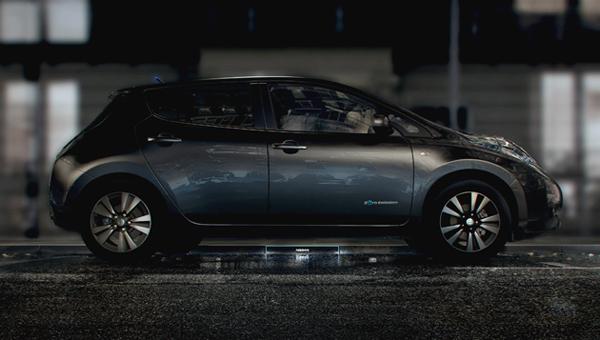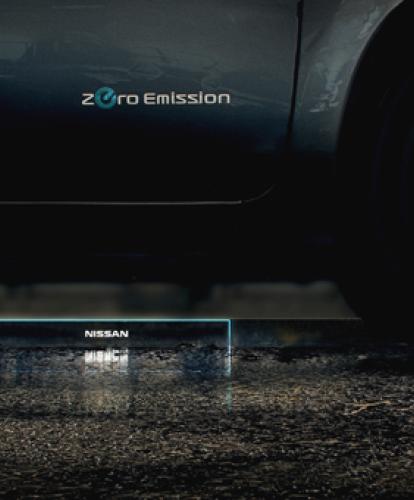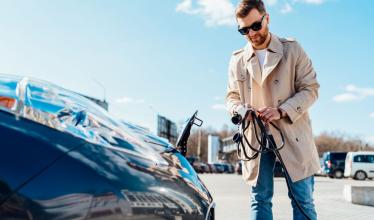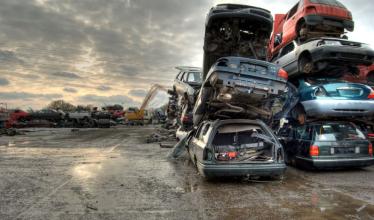Nissan and architects Foster + Partners have released a few details of their vision for the refuelling station of the future. Due to be officially unveiled in March 2016, a teaser video and a couple of pictures ae available which appears to show that the partnership believes there will be no refuelling stations at all in years to come.
At the end of August, Nissan announced that it was collaborating with world-renowned architects Foster + Partners to rethink the current refuelling infrastructure. With Nissan’s Leaf the world’s best selling electric car, and a Foster + Partners back catalogue that includes designs such as The Gherkin in London, the Millau Bridge in France, and the German Parliament in the Reichstag, Berlin, the collaboration is expected to produce something pretty special.
From the snippets of information we have been given so far, it appears that wireless charging technology has been incorporated into the set-up. This fits with Nissan’s assertion last month that a 7kW wireless charging device could easily cope with charging a larger battery pack overnight. The 60kW unit that Nissan is currently developing, that will allow a range of around 300 miles, would be compatible with this technology.
It also seems that the charging system will be built into roads or kerbs and integrated into general street furniture, rather than having specific refuelling forecourts as we do now. Quite how far these plans will make it into production remain to be seen but further details will be presented in March 2016.
David Nelson, Head of Design, Foster + Partners, said: “As we look ahead at the next 10 years, autonomous cars, artificial intelligence and greater connectivity will come at great pace – and it is our job as architects to inspire and support that change. Pre-empting those developments and integrating technologies to offer urbanites a totally seamless experience is vital, if we are to succeed in creating cities that serve us.”

Richard Candler, General Manager, Advanced Product Strategy at Nissan, said: “We’ve been at the forefront of zero emission mobility since 2010, and for us this project is about inspiring people to come on the journey with us. The world around us is changing, and we find that tremendously exciting. With the rise of connected cities, there is the capacity for fuelling to be built into the very fabric of our day-to-day lives – independent infrastructure could be a thing of the past.”
The sneak peek comes a day after Nissan announced that it has set-up a vehicle-to-grid electricity supply trial, and that the company has also teamed up with a power management company to give a new life to its old EV batteries.



